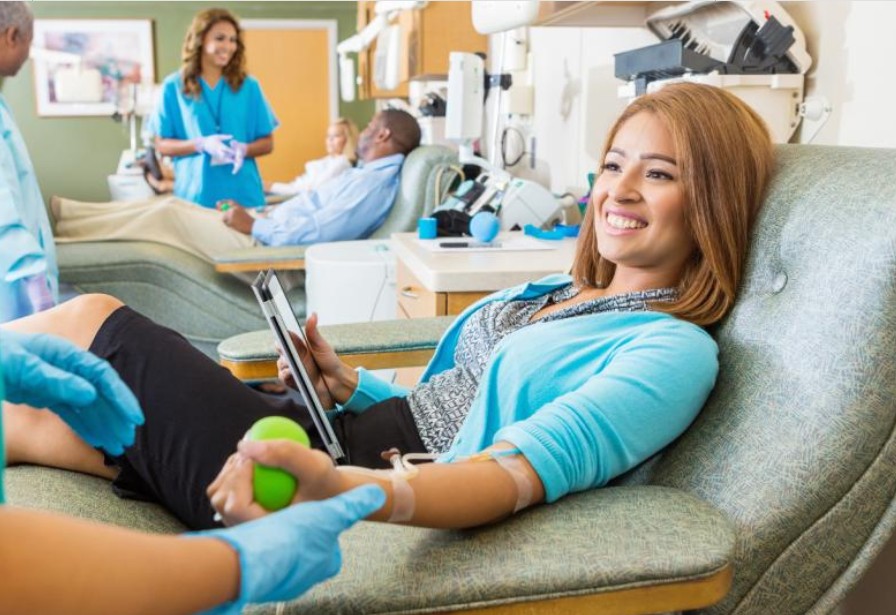With blood donation organizations locally and nationally enduring a critical shortage due to the coronavirus pandemic, centers are encouraging organizations to continue organizing blood drives and individuals to continue donating blood when possible.
A shelter in place order issued for six Bay Area counties, including San Mateo County, is keeping potential blood donors home and canceling donation events. However, blood donation is exempt from the order, as it provides an essential medical service.
Blood drives at schools, churches, community groups and religious institutions represent over 60 percent of the nation’s supply. Their cancellation could jeopardize patient care, according to Vitalant, the nation’s second largest blood provider which operates Peninsula Donation Center in San Mateo.
“We need people to donate blood today, while following guidance from the CDC and other agencies,” said Dr. Ralph Vassallo, Vitalant’s chief medical and scientific officer.
Added Harpreet Sandhu, executive director of Menlo Park-based Stanford Blood Center, the shelter in place won’t stop car accidents or the necessity for organ transplants, babies born in critical condition and chemotherapy.
“In short, there will still be lives that need saving,” Sandhu said.
Currently, all blood types are needed, with a significant need for platelets and Type O blood donations, according to Vitalant.
It is safe to donate blood, said Jenn Wagner, communications manager for the Stanford Blood Center.
“Every potential donor is given a mini-physical exam when they first arrive, and we take a medical history,” Wagner said. “We have also made social distancing part of our practice wherever possible and take every preventive measure to keep our donors safe.”
Vitalant said its staff follows “rigorous safety and disinfection protocols on our bloodmobiles and in our donation centers,” adding that “giving blood has no impact on the donor’s immune system.”
Individuals should not donate blood if they have visited mainland China, South Korea, Iran and Italy within 28 days, have had a COVID-19 infection, or been exposed to someone suspected of having been infected, according to Vitalant.
“According to the CDC, the risk of contracting COVID-19 is currently low,” Vassallo said. “Furthermore, due to the nature of the virus, it is highly unlikely that it can be transmitted through blood transfusions.”
Potential donors can visit Vitalant, the American Red Cross, and Stanford Blood Center to book an appointment and find out future dates for donation events.
Photo credit: Federal Drug Administration






